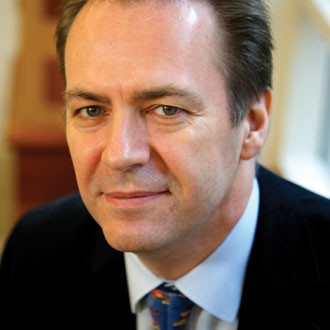GPs to move ‘as close to salaried as possible’ under radical plan to reduce workload in Scotland

Exclusive GPs will give up employing practice staff and potentially have contractual limits set on their workload under proposals being looked at by Scottish ministers.
The proposals will see GPs share responsibility for care with a wider ‘primary care team’, in a move that will see the profession move ‘as far towards salaried model as possible without losing independent status’ by 2017.
Under the plans – currently being developed by Scottish GPC and discussed with ministers – GPs will be contracted as independent ‘expert generalist medical advisors’, potentially with limits placed on their workload and their gatekeeper role shared among other professionals.
GPs will only be responsible for the direct care they provide under the plans and would no longer employ practice staff, with practice pharmacists and nursing teams directly employed by health and social care boards to carry out health checks, QOF work and prescribing.
The plans will be officially presented to GP leaders at the LMCs Conference in London later this week and they have already received backing from the Scottish health minister Shona Robison.
She told delegates at Pulse Live in Edinburgh today the ideas were ‘compelling’.
GPs in Scotland have a three-year pause in contract changes until 2017 in order to agree a completely new GP contract
Speaking at Pulse Live, Scottish GPC chair Dr Alan McDevitt said the current independent contractor status model was too risky and putting off potential new GPs. He said the new proposals could ‘engender hope’ and ‘encourage more GPs into the profession’.
Dr McDevitt explained: ‘We are arguing for a physican-led primary healthcare team – it doesn’t mean you’re the boss because you don’t employ the team but you should be leading how to achieve the outcomes, providing expert medical support to those team members.’
He said the contract with the local health organisation would ‘still be based on practices and practice lists’ as this allowed ‘the personal, relationship-based care fundamental to the future – that’s how we manage risks in the community, that’s how we have joint, shared decision making with patients’.
But he said this would mean ‘the community gets a share of the GPs’ time’ and that GPs will only have responsibility for the care they directly provide.
He warned that if negotiators failed to secure a more attractive independent contract for GPs they would end up with a fully salaried model, but that the aim was to ‘try to keep the best of the independent contractor status at the same time as getting rid of the worst of it’.
Ms Robison said the new GP contract from 2017 was a ‘big opportunity’ to change general practice.
She said: ‘We have had this discussion… about moving away from the kind of gatekeeper role of general practice to a model of primary care being a wider health team, with GPs being the clinical experts.
‘That’s something that I know the BMA and the RCGP have said is a more sustainable model.’
She added: ‘But the GP would provides the clinical expert advice to that primary care team – that is quite a different model to what we have at the moment – but the RCGP and the BMA are saying this is a good model to work towards.’
Pulse July survey
Take our July 2025 survey to potentially win £1.000 worth of tokens











